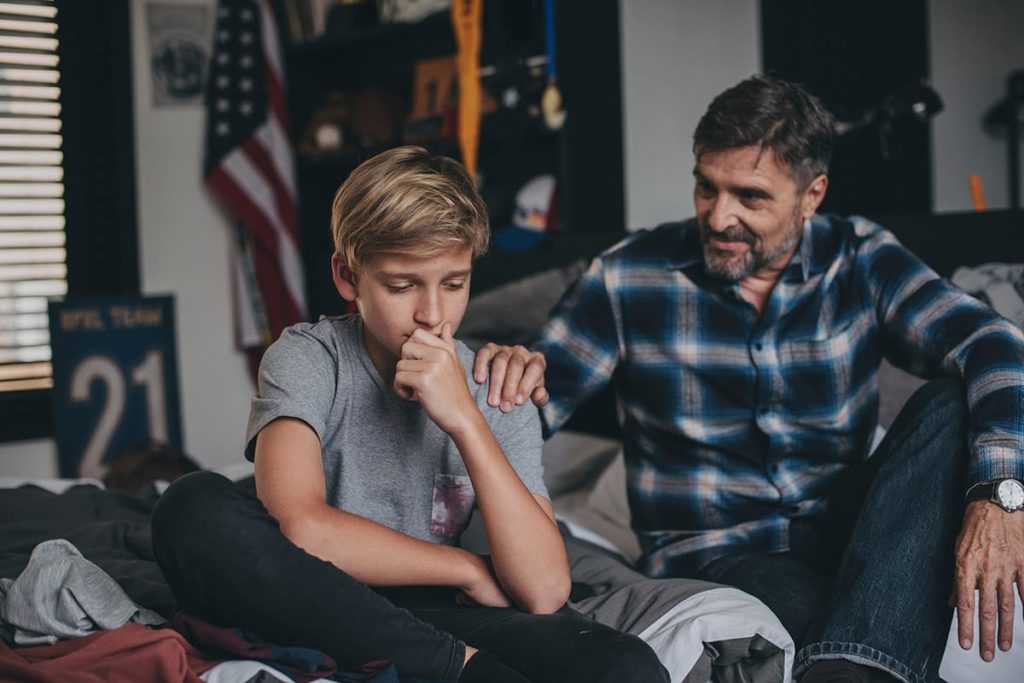Dealing with grief is never easy, especially for teenagers who may be experiencing it for the first time. If your teen is struggling with bereavement, they are not alone. Grief and loss therapy can help teenagers process their emotions and heal.
Call the experts at Imagine Nampa at 888.503.4604 to learn more about our grief and loss therapy programs.
The Importance of Coping Skills
Healthy grief coping skills can be learned, and specific activities can help teens build the skills they need to overcome grief. With the right tools, teens can identify their emotions and find productive ways to handle them.
Activities that Teach Coping Skills for Grief and Loss for Teens
Certain activities can help facilitate the healing process from grief and teach teenagers how to respond to overwhelming emotions. A few examples of the activities taught at Imagine Nampa include:
Journaling
Talking about grief can be difficult. Just bringing up the topic can cause intense bouts of depression, anger, or sudden mood swings. But processing grief often means delving into these emotions, and journaling can be an effective way of processing loss.
Journaling can help teenagers explore their emotions, frustrations, and doubts without the fear of judgment or shame.
Meditation
Mindfulness practices are some of the most effective grief coping skills available. Mindfulness doesn’t resolve grief, but it does show teens how they can experience their grief without needing to react to it.
For instance, a teen who remembers a significant loss may experience a sudden shift in mood and feel locked on to the memory for an extended period despite trying to push it away. Mindfulness teaches them to accept their thoughts and can provide a powerful sense of calm and focus during difficult times.
Self-Care Practices
Self-care can become a powerful tool to help manage the effects of grief. But it’s important to distinguish between what counts as self-care and what may just be a distraction.
When people engage in self-care, they not only feel good during the practice, but they also feel good about having done it. They also tend to create a long-lasting stress-reducing effect that confers health benefits. Some examples include:
- Exercise
- Hiking
- Spending time with friends
- Reading
Activities such as watching TV, playing video games, or eating a bag of potato chips might feel good in the moment, but they might not meet the criteria for self-care.
Self-care practices help teenagers tend to their physical, emotional, and spiritual health despite their challenging circumstances.
Group Therapy
Group therapy can be incredibly healing for teenagers experiencing grief. It lets them know that they are not alone and that other people have gone through similar experiences and came through the other side feeling better.
Seeing a peer with a shared lived experience grow through the grieving process can prove to teenagers that they can recover, too.
Role-Playing
Role-playing is a tool used in behavioral health programs to build healthy coping skills for grief and loss for teens. Role-playing helps teenagers express their emotions and feelings to others in a safe, controlled environment, which can directly translate into learning to open up in real life.
Help Your Teen Learn Healthy Grief Coping Skills at Imagine Nampa
If your teen is struggling with a recent loss or ongoing grief, the mental health treatment team at Imagine Nampa may be able to help. Our expansive treatment center offers several different evidence-based treatments and therapies to help adolescents thrive despite mental health challenges and build skills that can last for a lifetime in recovery.
Reach out to our team today by calling 888.503.4604 or contacting us online, and get your child the help they need to recover.

